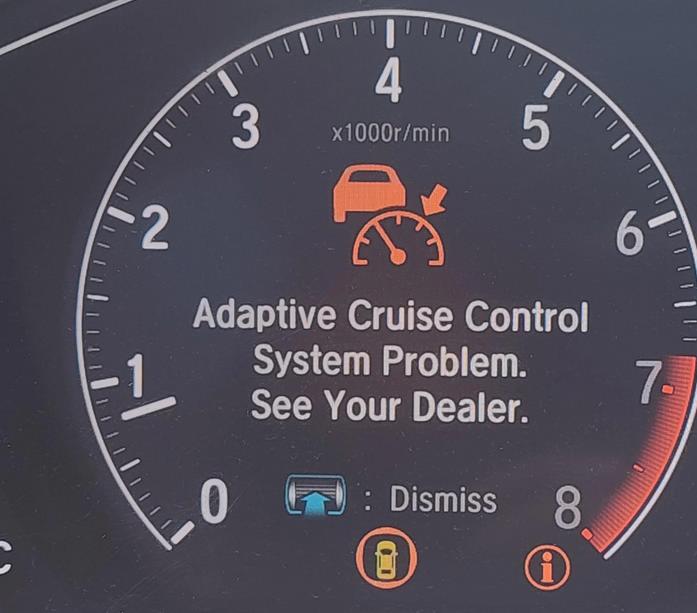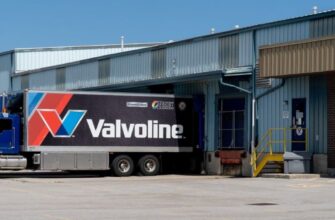Adaptive Cruise Control (ACC) is one of those modern vehicle features that makes driving, especially on long highway stretches, significantly less tiring. By automatically adjusting your speed to maintain a safe distance from the car ahead, it adds a layer of convenience and safety. But what happens when this smart system decides to take a day off, displaying error messages like “Adaptive Cruise Control unavailable” or simply failing to engage?
Experiencing ACC issues can be confusing because the system relies on a network of sensors, cameras, and complex software. When one part of this intricate setup malfunctions, the whole system can be disabled. So, if your adaptive cruise control is acting up, what could be the reason, and what can you do about it?

How Adaptive Cruise Control Works (Simply Explained)
Unlike older, standard cruise control that just maintains a set speed, ACC actively monitors the road ahead. It typically uses radar (often located in the front grille or bumper), cameras (usually near the rearview mirror), or a combination of both.
Sensors Are Its Eyes
These sensors constantly scan the road to detect vehicles in your path and calculate the distance and relative speed. The car’s computer then uses this information to either maintain your set speed or automatically apply the brakes or reduce throttle to slow down and keep a safe following distance. When the path ahead clears, it will accelerate back to your set speed.
A Symphony of Systems
ACC works in conjunction with other vehicle systems like the engine control module, transmission control module, and potentially even the braking system. If any of these systems report an issue, or if the ACC module itself detects a problem, it will deactivate the system and alert the driver.
Common Causes of Adaptive Cruise Control Issues
Given its reliance on sensors and complex electronics, ACC is susceptible to various problems.
Blocked or Dirty Sensors
This is one of the most frequent reasons for temporary ACC unavailability. The radar unit (often a flat panel) in the front bumper or grille, or the camera at the top of the windshield, can get blocked by:
- Mud, dirt, or grime
- Snow or ice
- Heavy rain or fog
- Bugs or debris
If the system’s “eyes” are obstructed, it cannot accurately detect objects ahead and will likely shut down for safety.
Misalignment of Sensors
Even a slight bump or minor fender bender can cause the ACC radar unit to become misaligned. If the sensor isn’t pointing exactly where it should, it won’t get accurate readings, leading the system to fault. This often requires professional recalibration.
Software Glitches
Like any complex computer system, the ACC module’s software can sometimes experience temporary glitches or errors that cause it to malfunction or freeze, similar to issues seen in infotainment systems.
“My adaptive cruise control just randomly turned off on the highway with an error message. Turning the car off and on later seemed to reset it, but it’s happened a few times. Feels like a software bug.” – Reddit User cbyza
Sometimes, complex electronic systems just need a reset, though as experienced by some users, this isn’t always a permanent fix. We’ve seen similar unpredictable electronic behavior in other systems, like the Jeep Wrangler TIPM Failure Symptoms which can cause a wide array of random electrical issues.
Electrical or Power Issues
Problems with the vehicle’s electrical system, such as a weak battery, poor connections, or issues with the ACC module’s power supply, can cause the system to fail intermittently or completely.
Issues with Related Systems
Because ACC interacts with braking, engine, and stability control systems, a fault in one of those areas can sometimes trigger an ACC error as well.
Heat or Overheating
In some cases, especially on longer drives or in hot conditions, the ACC module or related sensors might overheat, causing the system to temporarily shut down until it cools. One user on Reddit mentioned this possibility in relation to their vehicle’s system potentially being liquid-cooled.
“Mine consistently fails on longer drives, about 30-45 minutes in. It throws an error and won’t turn back on until the car sits for a while. The service center hasn’t been able to fix it permanently yet.” – Reddit User Worth-Ad-2283
This kind of intermittent system failure that occurs under specific conditions (like extended use) and resolves after a cool-down period is frustratingly common in complex electronic systems. Our guide on Explaining the Nissan Rogue Chassis Control System Error discusses another integrated system where multiple factors can cause errors.
Hardware Failure
While less common, the ACC radar unit, camera, or control module itself can fail internally and require replacement.
Troubleshooting Adaptive Cruise Control Issues (What You Can Try)
If your ACC system is acting up, here are some steps you can take:
1. Check for Blockages
The first and easiest step is to visually inspect the front of your vehicle (grille, bumper area) and the top of your windshield (near the rearview mirror) for any dirt, snow, ice, or debris that might be blocking the radar sensor or camera. Clean them thoroughly.
2. Consult Your Owner’s Manual
Your vehicle’s owner’s manual will have specific information about the ACC system, including potential error messages and basic troubleshooting tips specific to your model. It might also show the exact location of the sensors.
3. Try a Simple Reset
Sometimes, turning the car completely off, opening and closing the driver’s door, waiting a few minutes, and then restarting the vehicle can reset the system. While this doesn’t work for all issues, and some users reported it didn’t help their specific problem, it’s a quick thing to try.
4. Check Your Vehicle’s Battery Health
A weak battery can cause a multitude of seemingly unrelated electronic issues. Ensure your car’s battery is in good condition and properly charged.
5. Look for Other Warning Lights
Note if any other warning lights (like Check Engine, ABS, or Stability Control) are illuminated on your dashboard, as these could indicate a related problem affecting the ACC.
“Glad I’m not the only one dealing with this! It’s super annoying when ACC cuts out on long drives because then you actually have to pay full attention again. Doesn’t even let you use regular cruise control when it fails.” – Reddit User cbyza
This highlights how an ACC failure doesn’t just remove a convenience feature; it changes the driving dynamic and can be frustrating, especially when basic cruise control is also disabled.
When to Seek Professional Help
If you’ve checked for blockages and tried basic resets without success, or if the issue is persistent or intermittent on long drives as described by users online, it’s time to take your vehicle to a qualified mechanic or dealership.
- The ACC system remains unavailable after troubleshooting.
- You see a specific error message that doesn’t clear.
- The problem is intermittent but happens regularly (e.g., on every long trip).
- You suspect sensor misalignment (e.g., after a minor impact).
- Other dashboard warning lights are also illuminated.
Diagnosing ACC issues often requires specialized diagnostic tools that can read specific fault codes from the ACC module and related systems. Professionals can also check for software updates or perform sensor recalibration if needed. Be aware that, as noted by users, even service centers sometimes require multiple attempts to fully resolve complex, intermittent ACC issues.
Frequently Asked Questions (FAQ)
Q: Can I still drive my car if the adaptive cruise control is not working?
A: Yes, you can safely drive your vehicle even if the adaptive cruise control system is malfunctioning or unavailable. The vehicle’s fundamental braking, acceleration, and steering systems are not typically affected. You will just need to use standard cruise control (if it’s still functional) or control your speed manually.
Q: How much does it cost to fix adaptive cruise control issues?
A: The cost can vary significantly depending on the cause. Simple fixes like cleaning a sensor are free. However, if a sensor needs recalibration, a module needs a software update, or a hardware component (like the radar unit) needs replacement, costs can range from a few hundred to over a thousand dollars or more, depending on the vehicle make and model.
Q: Can weather affect adaptive cruise control?
A: Yes, bad weather is a common reason for temporary ACC deactivation. Heavy rain, snow, fog, or ice can block the sensors or interfere with the radar/camera signals, causing the system to become unavailable until conditions improve or sensors are cleaned.
Q: Why does my adaptive cruise control sometimes work and sometimes not?
A: Intermittent issues are often the hardest to diagnose. Common causes include temporary sensor blockages that clear, software glitches that resolve after a restart, or components that only fail when they reach a certain temperature (like on longer drives).
Q: Can a dirty windshield cause ACC problems?
A: Yes, if your vehicle uses a camera located near the top of the windshield as part of the ACC system (or a related system like lane keeping assist that shares components), dirt, grime, or even streaks on the windshield in front of the camera can obstruct its view and cause the ACC to malfunction or become unavailable. Keep your windshield clean!
Conclusion
While incredibly convenient, adaptive cruise control systems can sometimes suffer from frustrating issues, often related to their sensitive sensors and complex electronics. Many problems are caused by simple blockages that you can clear yourself. However, persistent or intermittent issues often require professional diagnosis due to the interconnected nature of the system and the need for specialized tools. By understanding the common symptoms and causes, you can take the right steps to troubleshoot the problem and get your smart cruise control back in working order, making those long drives effortless once again.








